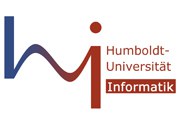Near Regular Texture Synthesis
The objective of texture synthesis is to generate an arbitrarily sized image that reproduces the texture of a relatively small sample image. During the last years, many researchers in computer vision and computer graphics have proposed methods for texture synthesis and achieved impressive results for many kinds of textures. Sample-based methods compose the output only from extracted pieces of the input sample in contrast to methods that infer a statistical model for the input texture. Near-regular textures, i.e. textures that contain global regular structures and additional irregular stochastic structures (e.g. due to the yarn structure in cloth etc.) are still difficult to synthesize. This kind of texture is ubiquitous in the real world, such as cloth, bricks, tiles etc. A faithful reproduction of these textures should preserve both the regular pattern of the texture as well as the stochastic nature of the irregular structure. The latter might be subtle yet very important for the natural appearance of the result. Simple tiling would fail to reproduce the stochastic nature of the irregular structures and statistical methods would fail to reproduce the regular structure.
In this work, we propose a method to synthesize near-regular textures in a constrained random sampling approach. In a first analysis step, we treat the texture as regular and analyze the global regular structure of the input sample texture to estimate two translation vectors defining the size and shape of a texture tile. In a subsequent synthesis step, this structure is exploited to guide or constrain a random sampling process so that random samples of the input are introduced into the output preserving the regular structure previously detected. This ensures the stochastic nature of the irregularities in the output yet preserving the regular pattern of the input texture. Although our method was developed for near-regular textures we observed that it produces also very good results for irregular textures.
Results: NRT Type I textures are better synthesized with our method than with other existing patch-based approaches. In columns from left to right: input texture sample with the detected lattice superimposed in red, output of best selfsimilar tile repetition, our main synthesis technique (RSGF) and an implementation of IQ [Efros(2001)].
Results achieved with our method for irregular textures.
Selected Publications
D. Lopez Recas, A. Hilsmann and P. Eisert
Near-Regular Texture Synthesis by Random Sampling and Gap Filling, Vision, Modeling, and Visualization Workshop 2011, Berlin, Germany, October 2011. [PDF]



